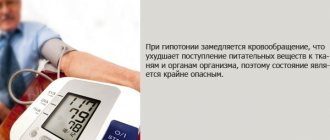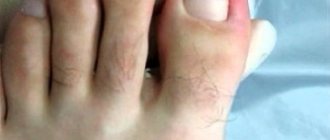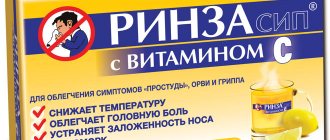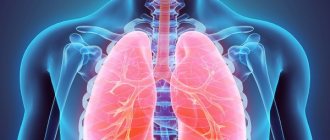How to distinguish influenza from ARVI: symptoms
In order for treatment to have an effect, it is necessary to correctly diagnose the disease. Therefore, people are often interested in how to distinguish influenza from ARVI. This is due to the similar symptoms of these diseases.
The flu always starts instantly. In most cases, a person indicates the exact time when he felt worse. And with ARVI, the deterioration occurs slowly and lasts for 1-2 days.
The onset of influenza is characterized by pain in the head, forehead, and eyes. Body aches appear. The temperature reaches 39-40C. ARVI begins with nasal congestion, the throat is sore and painful to swallow, it does not ache in the body. With ARVI, the temperature does not exceed 38.5C.
The main difference in the initial period is redness of the eyes and lacrimation. This is the symptom that indicates the flu. And sneezing is characteristic of ARVI.
Distinguish influenza from ARVI by the nature of the cough. With ARVI, the patient begins to cough from the very beginning of the disease. However, it is dry and choppy. Cough with influenza occurs only on the 2nd or 3rd day. With a cough, sore throat and runny nose appear. Cough exhausts the patient and causes pain in the sternum.
With the flu, a person feels worse compared to ARVI, even to the point of loss of ability to work. Improper treatment of influenza can lead to serious complications, even death.
ARVI does not entail complications and goes away in 7-10 days. The body is not weakened after the disease. Flu is different in this regard, since during the recovery period a person may feel dizzy, lack appetite, and be irritable.
Influenza epidemics and pandemics
We have already said that the influenza virus mutates all the time. There are mild, minor mutations, which in the scientific community are called antigenic drift, and cardinal ones - antigenic shift. The former occur seasonally and are the cause of epidemics - local outbreaks of morbidity limited to a certain region (city, region, country). Antibodies in our body are not able to effectively respond to the modified virus, but since the changes are minor, they still act. Therefore, epidemics do not develop into pandemics. Radical mutations create a completely new subtype of the virus and cause pandemics - outbreaks of influenza that are not limited to one region. The mutated virus encounters virtually no resistance from the immune system of a person infected with influenza, since it is something completely new. Therefore, it easily overcomes the borders of several countries and even continents.
How to properly treat influenza in adults: methods, treatment regimen
There are several ways to treat influenza:
- Medication;
- Homeopathic;
- Traditional methods.
Treatment regimen:
- Making a diagnosis, clarifying the severity of the disease, this will indicate how to treat influenza in an adult;
- The main treatment prescribed by the doctor;
- Antiviral treatment
Treatment of influenza at the first sign, without fever
The first signs of influenza are:
- Frequent sneezing.
- Nasal congestion without mucus discharge.
- Dry cough.
- Sore throat.
If signs of the flu appear, you should:
- Maintain bed rest;
- Drink plenty of liquids;
- Avoid junk food;
- Quit smoking, alcohol;
- Consult your doctor.
Treatment of influenza with fever, cough and complications, signs in an adult
If you get the flu, you need to be careful about your treatment. Since the flu is fraught with various complications . Therefore, if signs such as cough or temperature appear, you should contact a therapist who will prescribe the necessary treatment.
The cough exhausts the patient and causes chest pain. A dry cough is more troublesome at night. It does not stop for a long time and does not give rest to a person. With proper treatment, it progresses to the next stage. At this stage, coughing produces phlegm. To treat cough, tablets and syrups are prescribed.
A high temperature is a sign of the functioning of the immune system. But at a temperature, convulsions, vomiting may appear, and individual intolerance is also possible. In these cases, taking antipyretics is recommended even with a slight increase in temperature.
You should not ask your friends how to treat the flu in adults and self-medicate. In case of any complications, you should contact a specialist. The course of treatment must be prescribed by a doctor.
You should urgently seek the help of a specialist if the following signs appear:
- Convulsions;
- Hallucinations, disturbance of the patient’s consciousness;
- Temperature above 40C;
- Shortness of breath, difficulty breathing;
- Pain in the back of the head that is not relieved by medications;
- Skin rash.
Drug treatment of influenza
Drug treatment of influenza should be carried out in a complex manner. It includes:
- Causal therapy destroys the influenza virus.
- Pathogenetic therapy stops the progression of the disease.
- Symptomatic therapy.
Symptoms of the disease
Most colds, regardless of the cause, have similar symptoms.
Characteristic signs of ARVI are:
- increase in body temperature to subfebrile levels (37-38 ° C);
- cough;
- runny nose;
- headache;
- a sore throat.
In many cases, the main symptoms can be supplemented by pronounced signs of intoxication: nausea, accompanied by bouts of vomiting, and stool disturbances.
The symptoms of influenza have some differences from the symptoms that appear with other respiratory infections. However, they do not always occur. With normal functioning of the immune system or infection with a weak type (strain) of the virus, the manifestations of influenza and ARVI will be identical.
The main symptom for most illnesses caused by influenza infection is a high temperature for 3-5 days.
An increase in temperature above subfebrile levels for more than 5 days indicates the development of complications and the addition of a secondary infection.
ARVI is characterized by sudden onset, a sharp increase in body temperature, chills, and weakness. A runny nose, dry cough, sore throat and body aches usually appear on the second day after the onset of the disease. Starting from the fourth or fifth day, the temperature subsides, but the symptoms become more pronounced.
Influenza is characterized by mild muscle pain and aching joints, which can occur both at an early stage of the disease and somewhat later, after a significant increase in temperature. Compared to ARVI, respiratory symptoms with influenza are less pronounced. For example, when coughing, a runny nose, accompanied by swelling of the nose and sneezing, may be completely absent. The flu is accompanied by pain when moving the eyeballs, dry mouth, and fever. The skin on the patient's face acquires a reddish tint, the lips become bright and dry.
The course of severe forms of influenza is often complemented by the appearance of spider veins on the body, various types of bleeding, the occurrence of delusional states, and impaired consciousness. Sometimes the pathology is complicated by diseases such as bronchitis, otitis media, pulmonary inflammation, etc.
How to treat, inexpensive but effective medications, names of tablets, list
Effective medications for flu and colds are divided into three groups:
- Antiviral: Nomides, Tamiflu, Amiksin and Ribavirin.
- Immunomodulators: Cycloferon, Kagocel and Anaferon.
- Medicines that eliminate the symptoms of the disease: ColdactFlu Plus, Coldrex, Rinza and Fervex.
Nomides, the drug oseltamivir, which has shown high effectiveness in the treatment of influenza A and B, has become especially popular among prescriptions. It is recommended to take Nomides no later than 2 days from the moment the first symptoms of influenza appear. This is due to the mechanism of action of the drug, based on its ability to stop the spread of infection. The duration of Nomides therapy is determined by the doctor and is usually 5 days.
Nomides is an effective flu drug.
The use of Nomides for influenza significantly reduces the risk of complications, and also shortens the duration of the disease and reduces the severity of manifestations.
Cough remedies
The fight against cough and flu is carried out in 2 stages:
- thinning of sputum;
- removal of sputum.
Preparations for thinning sputum during influenza are mucolytics. The main means for thinning sputum are:
- Mukaltin. This is a remedy based on medicinal marshmallow. It is most effective and not expensive.
- Bromhexine . A drug with a pronounced mucolytic effect. The effect is achieved by activating the secretory function of the bronchial glands and reducing the viscosity of sputum.
- Ambroxol . Has a pronounced mucolytic effect. Has the same effect as Bromhexine.
- Licorice root syrup . The main component is licorice root, which causes a therapeutic effect. It also contains additional substances that enhance the effect.
Medications for sputum removal include:
- Marshmallow roots . The expectorant effect is achieved by stimulating the peristalsis of bronchioles and diluting bronchial secretions. It is also characterized by an anti-inflammatory effect.
- Thermopsis cough tablets . An effective and inexpensive expectorant. Reduces the viscosity of sputum.
- Plantain syrup . The plant is characterized by high efficiency in removing sputum. Thanks to the rich composition of the product, the viscosity of sputum is reduced, cough and vomiting are irritated. width=”400″ height=”400″[/img]
- Amtersol . Ammonium chloride based product. It is characterized by a pronounced expectorant effect.
These drugs are highly effective and at the same time have a minimum of contraindications and adverse reactions.
Flu is an extremely dangerous infectious disease of the respiratory system. Which can provoke a large number of complications. In this case, doctors include antibiotics in therapy. For therapy to have maximum effect, it must be comprehensive. Therefore, for influenza, not only antiviral, but also antipyretic, immunostimulating, antihistamine and other medications are prescribed. In order not to harm yourself, you should not self-medicate.
What antibiotics should adults take for the flu?
The viral disease lasts for 3-5 days. If the patient's condition does not improve, doctors prescribe antibiotics.
Ceftriaxone
Ceftriaxone is considered one of the most powerful antibiotics. It should not be used at the onset of the disease, since this is an antibacterial medicine, not an antiviral one. The reason for the prescription can only be a very dangerous complication.
Doctors prescribe Ceftriaxin for the following complications after influenza:
- pneumonia;
- lung abscess;
- purulent sore throat;
- sepsis;
- bacterial diseases of the genitourinary system;
- meningitis.
Cefazolin
Cefazolin is the most effective and powerful antibiotic. Experts prescribe it when other antibiotics have not had a therapeutic effect. It has a small range of side effects and they occur in rare cases.
Most often, patients complain of severe pain when injecting Cefazolin and hardening of the injection site. However, it is worth being patient for a speedy recovery.
Azithromycin
Azithrimycin belongs to the group of broad-spectrum drugs. It is characterized by an antibacterial therapeutic effect. Azithromycin suppresses pathogenic bacteria and quickly improves the patient's condition. This drug has a cumulative property.
With each subsequent dose, Azithromycin enhances its effect and retains its therapeutic effect for several days after the last dose. This medicine is effective for flu with complications. The big advantage is that it is well tolerated and rarely has side effects.
He is appointed:
- at a high temperature that lasts for more than one day;
- with enlarged cervical lymph nodes;
- photophobia and lacrimation;
- with purulent otitis.
Flemoxin
Flemoxin is prescribed in the following cases:
- High fever that lasts for 3 days;
- Vomiting, weakness and headaches appeared;
- Weakened body;
- According to test results.
The medication is taken according to a doctor's prescription. The specialist calculates the individual dosage.
Broad-spectrum antiviral drugs for influenza and ARVI
How to treat influenza in adults is of interest to people in the autumn-winter season. At this time, the most common diseases are colds, flu and ARVI. At the first signs, it is necessary to take antiviral drugs.
Cycloferon
Cycloferon is a drug with a strong immunomodulatory and antiviral effect.
Cycloferon is used at the onset of a cold. The medicine prevents the proliferation of viruses and leads to a speedy recovery. For severe influenza, an adult takes 6 tablets in the first days of illness.
Every other day, three tablets again. It is prescribed to children from the age of four. There are contraindications for patients with diseases of the gastrointestinal tract. Before use, you should consult your doctor.
Lavomax
One of the most popular immunomodulatory drugs in the treatment of influenza and ARVI is Lavomax.
It is prescribed to people who suffer from ARVI more than 5 times a year or pneumonia more than 3 times. For prevention, experts prescribe Lavomax in November or December. To alleviate the form of the disease, the doctor prescribes it in the first hours or days of the disease.
Arbidol
Arbidol is an antiviral drug that is prescribed for the prevention and treatment of influenza and other colds.
The drug is available in different forms. It is also prescribed to adult children over 2 years of age. An allergic reaction when taking Arbidol occurs very rarely.
Kagocel
Kagocel is a drug with a pronounced antimicrobial and antiviral effect. Kagocel is easily tolerated by patients and causes almost no adverse reactions. It is used both for the prevention of colds and for their treatment.
The immunomodulatory effect of this drug lasts for another 2-3 days after the last dose. Contraindication for use is individual intolerance to the drug. It is prescribed starting from the age of three.
Recent indications have proven that Kogacel reduces the risk of complications and accelerates and facilitates the recovery process from influenza and acute respiratory diseases.
The dosage and regimen are prescribed individually for each patient by the attending physician.
Pros and cons of antivirals
The use of antiviral drugs, like any treatment, has its positive and negative sides. Numerous clinical trials confirm the effective effects of such drugs for the treatment of viral diseases. But the lack of timely treatment for infections can lead to complications. That is why it is very important to start treatment on time to fight colds and flu.
Before seasonal epidemics of colds and flu, doctors recommend procedures to boost immunity and timely vaccination.
Like any medicine, antiviral drugs may have contraindications, which is a significant disadvantage for therapy. However, the correct selection of the remedy will avoid side symptoms and speed up recovery.
Antipyretic drugs for fever
A serious reason for using antipyretics is a temperature of 38.5°C. There are several forms of release of antipyretic drugs.
The most familiar to everyone is the tablet. They relieve fever for a long period of time.
Children are most often prescribed syrups. They have a pleasant taste, smell and color. Measure syrups using a measuring spoon. Syrups are quickly absorbed and enter the bloodstream, this helps provide a rapid therapeutic effect.
Candles are a safe and effective remedy. Convenient when prescribed to children under one year of age. In the presence of vomiting, suppositories are irreplaceable. Suppositories bypass the gastrointestinal tract without harming it. Their action is long-lasting and effective.
At high temperatures, the number one antipyretic drug is Paracetamol.
In addition, it is also an analgesic. In addition to the antipyretic effect, it relieves pain. Paracetamol is available:
- in capsules;
- tablets;
- suppositories;
- syrups for children;
- powder for making a drink.
The dose of the medicine directly depends on the weight and number of years of the patient. During the day you can take no more than 3-4 g. One dose should not exceed 1 g of paracetamol. The temperature begins to subside after 30-45 minutes.
The most effective and fastest way to combat fever is to take rectal suppositories. The use of alcohol during treatment is prohibited.
The drugs Panadol and Efferalgan have been developed based on paracetamol. Efferalgan is an effervescent tablet. They dissolve in warm water and quickly affect the temperature.
Various powders, which are diluted in warm water for use, are very popular. These are Vicks, Coldrex, Theraflu. The composition includes paracetamol, vitamin C and various flavoring additives. After consuming warm preparations, the symptoms of the disease are relieved within 20 minutes.
Products containing nimesulide block pain and lower temperature. It is better to take it for severe headache or muscle pain. During the day, you can use this drug in a dose not exceeding 200 mg. Nimesul and Affida Fort are prepared in powder form to make a drink.
Aspirin comes next after paracetamol. For adults, 1 g of aspirin is allowed per day. Acetylsalicylic acid has a quick effect on symptoms and a large list of contraindications.
Ibuprofen is a well-known remedy for fighting fever. In addition to the antipyretic effect, drugs with ibuprofen have anti-inflammatory and analgesic properties.
Antipyretics
Body temperature rises under the influence of pyrogens - active substances that are produced in response to pathogens and toxins. Fever is a protective reaction of the body in response to pathological reactions that occur in the patient’s body. But you should not take medications to lower your temperature below 38 degrees. Antipyretic medications block the production of substances that cause fever.
The main antipyretic drugs for the treatment of influenza are:
- Paracetamol. The most popular and affordable medication, which is included in most combination products. It is this drug that is allowed to be taken in pediatrics. The product is well tolerated by the body and almost never causes adverse reactions. This is the safest remedy. Children over 12 years of age and adults take 500 mg of paracetamol once. For younger patients, take the product in the form of syrup or rectal suppositories.
- Aspirin . It is related to non-steroidal anti-inflammatory drugs, characterized by antipyretic, analgesic and anti-inflammatory effects. Acetylsalicylic acid reduces blood clotting and prevents thrombus formation. The use of Aspirin is contraindicated in children under 15 years of age. It causes a large number of adverse reactions and has quite a few contraindications for use.
- Ibuprofen . The most effective medicine for flu at elevated temperatures. Included in Nurofen, Ibuklin. But this remedy, like Aspirin, has a negative effect on the mucous membrane of the stomach and intestines. It irritates the mucous membrane, therefore causing vomiting and nausea. Do not take for diseases of the gastrointestinal tract, rhinitis, asthma, urticaria, bronchial asthma. Ibuprofen is contraindicated in children under 12 years of age in tablets and capsules. Children from 3 months are prescribed suspensions and rectal suppositories.
Most antipyretics are available in pharmacies without a prescription. But you need to take the drugs for at least several days. It is recommended to consult a doctor before use.
Principles of treating colds and acute respiratory viral infections at home: WHO clinical recommendations
There are clinical recommendations on how to treat flu and colds in adults at home.
First of all, the patient should see a doctor who will conduct an examination and make a diagnosis. If the disease is mild, the patient is treated at home.
Then the patient must be provided with a calm environment, the diet must be followed, the diet must contain vegetables and fruits, and indigestible foods must be removed from the patient’s menu.
To prevent dehydration, the patient must constantly drink warm drinks.
The temperature is brought down when it exceeds 38-38.5C, using medications prescribed by the doctor.
When coughing, medicines and expectorants are prescribed, as well as inhalations based on herbal decoctions.
Take multivitamins. The patient must remain in bed. Taking immunomodulatory drugs will help you avoid complications with the flu.
Experts prescribe antiviral drugs in cases of severe disease.
Causes of the disease
Any virus, including influenza, is transmitted by airborne droplets. Thus, an absolutely healthy person can contract an infection after contact with a sick person. You can become infected with ARVI or influenza through shaking hands, kissing, touching common objects, etc. The influenza virus exhibits resistance, persisting for a long time in the external environment. The source of infection can be not only humans, but also animals and birds.
The most common causes of ARVI are:
- parainfluenza viruses;
- influenza A, B and C types;
- rhinovirus;
- adenovirus;
- reovirus.
Colds most often affect older people, especially if their immune system is weakened.
Incubation period
The incubation period begins after the virus enters the blood.
Its duration varies from 2 to 5 days depending on the type of infectious pathogen.
At the onset of the disease, the virus multiplies in the nasal cavity, nasopharynx, and larynx and is accompanied by pain in the eyes, sore throat, runny nose and dry cough.
During the incubation period, there is usually no increase in temperature. Sometimes the gastrointestinal mucosa is involved in the pathological process.
First signs
The first signs of a cold caused by a virus are malaise and weakness.
Symptoms are usually accompanied by:
- pain, soreness and dry throat;
- increased body temperature;
- pain in the eyes;
- runny nose;
- sneezing.
At the onset of the disease, there may be an increase in regional lymph nodes, inflammation of the laryngeal mucosa, accompanied by a change in the timbre of the voice, lacrimation, runny nose and cough.
With flu and colds, most patients experience sleep disturbances. In some of them, chronic herpes worsens, which is manifested by the appearance of characteristic rashes on the lips, which are blisters with a liquid composition inside.
After the virus enters the blood, the general symptoms are supplemented by signs of intoxication of the body: chills, muscle pain, headache, and aching joints.
Activation of the immune response promotes the production of antibodies to the virus. This leads to the purification of blood and lymph and the disappearance of symptoms of intoxication. The beginning of recovery in an uncomplicated form of ARVI is indicated by a wet cough with sputum discharge and the disappearance of signs of inflammation during a runny nose.
Risk factors
People with reduced immunity are most often exposed to any colds, which include primarily the elderly, children, and pregnant women. The cause of a cold, unlike the flu, is its own microorganisms, the activation of which occurs during the development of the pathological process. In a weakened state, in order to catch a cold, severe hypothermia of the body is enough.
A decrease in protective functions increases the likelihood of patients contracting influenza infection. According to statistics, the flu epidemic occurs in the winter season (most often in February).
Methods of treating ARVI with folk remedies, without drugs (tablets): the best remedy
As a rule, influenza in adults can be treated using traditional methods . With the huge availability of medicines, traditional methods are not inferior to their positions in the treatment of colds and acute respiratory viral infections. At the onset of the disease or in the absence of complications, treatment with traditional methods is as effective as medications for treatment.
Rosehip is one of the effective remedies in the fight against influenza, ARVI and colds. Dried berries need to be mashed. 5 tablespoons of the pulp obtained from the berries are poured into 1000 ml of cold water. The resulting mixture is placed on low heat and boiled, stirring for 8-10 minutes.
Then the warm solution is placed in a warm place and wrapped. It must infuse for 10 hours. For taste, you can add honey, jam or syrup. When using honey, you must be careful, as it is an allergenic substance. The decoction should be taken for 7 days, after each dose, rinse your mouth with clean, cold, boiled water.
Garlic is a favorite folk remedy for the treatment of colds. There are many methods and recipes of traditional medicine using garlic. The most effective is a combination of honey and garlic.
Garlic must be crushed through a garlic press or press. Mix it in equal proportions with honey. The product is ready. Take it 1 tablespoon 3-4 times a day. Be sure to drink plenty of water.
A tasty medicine that children will really like are lollipops with ginger and honey. The method of preparing them is not complicated. Add a teaspoon of ground ginger and lemon juice to a glass of honey. This mixture should be placed in a bowl with a thick bottom and cooked for an hour and a half over low heat.
Then the hot mixture can be distinguished by silicone molds, which are thoughtfully greased with vegetable oil. After they harden, you can treat them to the sick.
What the Ministry of Health recommends
Let us note once again that there are much fewer antiviral agents with proven effectiveness than antibiotics. Despite this fact, at the beginning of the pandemic there was a loud advertising campaign for Arbidol; in recent months, reports have increasingly appeared about new drugs that were invented specifically to combat Covid - Coronavirus and Areplivir. And rumors are spreading among the people about the omnipotence of Ribavirin.
It is important to understand that there is no cure for coronavirus in the world. They were not found in the Russian Ministry of Health, whose methodological recommendations state the following:
– The currently available data on the results of treatment with various drugs do not allow us to make an accurate conclusion about the effectiveness or futility, therefore their use is allowed after approval by a special commission in the prescribed manner. A prerequisite for this is that the potential benefit for the patient exceeds the risk.
Features of the treatment of flu and colds during pregnancy and breastfeeding
How to treat influenza in adults is a question that often arises among expectant mothers. After all, it is very difficult to avoid the disease for 9 months. The flu can cause serious complications and cause not only premature birth, but also miscarriage. For this reason, treatment cannot be done at home; a woman should definitely seek help from a doctor.
When treating influenza in pregnant women, not all drugs are approved for use. Due to harmful effects on the fetus. Paracetamol is prescribed to pregnant women as an antipyretic. It can also be taken for headaches. Antipyretics should be taken no more than once every 5 hours.
Gargle with Furacilin solution. Pharmacies sell a ready-made solution. But it must be diluted with water in a 1:1 ratio. You can prepare such a solution yourself: crush Furacilin tablets and dilute with 800 ml of water.
To treat cough, expectorant mixtures based on herbal ingredients are used. Such mixtures should include marshmallow root and thermopsis. You need to take this mixture 4 times a day, 1 spoon. It will not harm either mother or child. There is no need to get too carried away with medicinal drugs.
Interferon can be used in the second and third trimester of pregnancy. Other antiviral drugs are prohibited during pregnancy. Antibiotics are prescribed by a doctor only in cases of complications of influenza and acute respiratory viral infections.
During breastfeeding, a mother is prohibited from doing many things. During this period, she follows a special diet, goes out little, and wears special clothes. If a mother happens to get sick, then she needs to choose a treatment that will not harm the baby.
There is no need to stop breastfeeding while treating a flu or cold. Scientists have proven that along with milk, the baby receives antibodies that are produced by the mother’s body.
This is a kind of vaccination that will strengthen his immunity. If the child’s body is weakened, the disease will be milder. Refusal of breastfeeding is justified in the case of using medications that can harm the baby.
Prohibitions during treatment for a nursing mother:
- Taking illegal drugs. The instructions for use always indicate contraindications.
- Taking medications that have been little studied.
- Do not treat yourself.
- Aspirin, drugs with bromhexine.
If the mother has to take illegal drugs, the child is transferred to complementary foods until the mother recovers. At that time, you need to constantly pump in order to maintain lactation and then return to breastfeeding again.
In case of complications, the woman is prescribed antibiotics that are compatible with breastfeeding.
To treat cough, expectorant syrup (for example, Gedelix) or herbal preparations (for example, Chest) are used.
For a runny nose, use saline solutions or special sprays. It must be remembered that the use of vasoconstrictor drops is allowed for one week, once or twice a day.
Antipyretics can only be used if the temperature exceeds 38 - 38.5C. You can use Paracetamol or Nurafen for a child over 1 month old.
Gargle with a solution of furatsilin and Miramistin.
In addition to drug treatment, expectant and nursing mothers must follow certain rules that will help them recover faster. Here are the basic rules:
- Get enough sleep;
- Drink plenty of fluids (water, berry fruit drinks);
- Ventilate the room every 2 hours;
- Eat properly.
For treatment, you can use traditional methods. But first you need to consult your doctor about the ingredients used.
Features of gentle therapy
The organization of gentle therapy, the need for which arises for individual patients, requires special attention. In this case, we are talking about elderly patients, people suffering from liver diseases, and women during pregnancy and breastfeeding.
During pregnancy and lactation
Almost all pregnant women have a severely weakened immune system. Therefore, expectant mothers have a much greater chance of catching a flu infection. For prevention purposes, doctors recommend that they get vaccinated.
It should be borne in mind that a woman’s illness during pregnancy can affect the condition of the unborn child. Therefore, young mothers are advised to strengthen their bodies, eat more vitamin-rich foods, and walk in the fresh air more often.
Most medications that can be prescribed to ordinary patients for influenza or ARVI are prohibited for pregnant women.
List of approved medications for women suffering from colds during pregnancy and lactation:
- antiviral Oxolinic ointment;
- antiviral suppositories Viferon;
- a homeopathic medicine aimed at eliminating the main symptoms - Oscillococcinum;
- You can drip Pinosol into your nose, wash the mucous membranes with saline solutions (Aqualor, Aquamaris, etc.);
- from vasoconstrictor drops, after consultation with a doctor, you can use children's drugs Nazivin, Xylen, etc.;
- To eliminate inflammation in the throat, gargling with Miramistin is prescribed.
Pregnant women are also recommended to gargle with calendula tincture.
Features in elderly patients
Treatment of infectious diseases in older people is much more difficult. Elderly patients have an increased likelihood of developing serious complications, such as pneumonia, sinusitis, pharyngitis, and otitis media. This category of people is at risk for the incidence of colds.
Prevention to combat the virus for elderly patients involves:
- timely treatment of infectious diseases;
- maintaining household hygiene;
- use of antiviral therapy and taking vitamins;
- isolation during treatment.
If complications develop, patients with ARVI may experience alarming symptoms: headache, runny nose, impaired external respiration, cough.
Manifestations indicate the addition of a bacterial infection, which requires adjustment of treatment. In case of development of pulmonary pneumonia, sinusitis or otitis, the main therapeutic direction will be antibiotic therapy.
For a diseased liver
A special approach is required for the treatment of colds for people with liver disease. The selection of medications, including antiviral ones, should be carried out taking into account contraindications for use.
Liver patients can be given:
- Kagocel;
- Arbidol;
- Antigrippin;
- ascorbic acid;
- Paracetamol.
They will benefit from cleansing the liver during treatment. To do this, patients should be given oatmeal with honey twice a day, morning and evening.
Prevention of influenza and ARVI in adults: effective methods
There are many different methods for preventing influenza and ARVI. It is most effective to use them in combination.
The following activities will be the most accessible and effective:
- Air and water hardening of the body;
- Flu vaccination;
- Proper nutrition;
- Systematic intake of vitamins;
- Maintaining hygiene;
- Taking antiviral medications;
- When communicating with patients, wear a gauze bandage;
- During an epidemic, rinse your mouth with saline solutions (soda with salt), potassium permanganate, and decoctions of medicinal herbs;
- Every time before going outside, put oxolinic ointment in your nose;
- Massotherapy.
Flu vaccination: where to get it, side effects, whether an adult should get the vaccine
Doctors began talking about influenza vaccination as an effective means of preventing this disease a very long time ago. The flu shot may not always prevent infection, but it can relieve symptoms and help avoid complications.
If you get a flu vaccine, then the question of how to treat the flu will disappear for a long time
The drug is administered intramuscularly. For adults, the injection is given in the shoulder, and for young children, in the thigh. The vaccine is not given in the buttock, since it is very difficult to reach the muscles in this place and the drug can be injected into the subcutaneous tissue, which will not have the desired effect.
- Possible side effects:
- pain at the injection site;
- slight increase in temperature;
- fatigue;
- weakness and muscle pain;
- headache;
- itching at the injection site;
- there is redness or hardness at the injection site.
Should adults get a flu shot or not? This is a question many people ask.
And everyone makes their own choice, taking into account the pros and cons of vaccination.
Pros of vaccination:
- immunity to one or more types of influenza;
- if infection occurs, the disease will be mild and will not lead to complications;
- free vaccination at the clinic;
- strengthens the body's defense system;
- no age restrictions for adults.
Disadvantages of vaccination:
- the virus mutates and the vaccine may not be effective;
- possibility of an allergic reaction;
- availability of low-quality vaccines;
- examination before vaccination for allergic reactions and absence of signs of a cold.
Taking into account the pros and cons of flu vaccination, everyone makes a decision whether or not to get vaccinated.
Preventative tablets for influenza
To prevent influenza, doctors recommend taking antiviral and immunomodulating drugs that can not only prevent infection, but also alleviate the course of the disease. These medications include:
Algirem is an antiviral drug developed on the basis of rimantadine using an original method. The drug also has an antitoxic effect, due to which side effects are rarely observed. Algirem can be used by both adults and children.
Tablets are indicated for use for prevention and at the first symptoms of the disease. This will ease the course of the disease. Studies have shown that Algirem protects the body and helps prevent disease.
Anaferon is considered the best preventative agent for children and adults. In addition to the preventive effect, this drug also has medicinal properties. Anaferon alleviates the patient's condition and reduces the possibility of complications. You can take pills only after it has been prescribed by a doctor, as there are many contraindications.
Arbidol is one of the most powerful antiviral and immunomodulatory drugs. This medicine is also prescribed for pneumonia and bronchitis caused by complications after the flu. Arbidol suppresses the virus that has entered the body and does not allow it to develop.
Immunal is made from plant components that stimulate the human immune system. Does not cause any side effects.
Another herbal medicine is Fitogor. It contains components of sage, calendula, mint and lemon balm. It helps improve metabolism and strengthen the immune system.
Reaferon is used to prevent influenza. It promotes the production of the body's own interferon, which helps strengthen its protective functions. This drug belongs to the group of potent drugs, so its use is possible only after a doctor’s prescription.
Remantadine suppresses the influenza virus. During illness, it reduces fever and cures headaches. Remantadine is able to protect the body from viruses type A and B. It is most effective to take it together with No-shpa. It is allowed to be taken only from 7 years of age and in the dosage prescribed by the doctor. It has been noted that the drug has a side effect on the liver.
To know how to properly treat the flu, you first need to consult a medical specialist. Only correct implementation of all doctor’s recommendations and comprehensive treatment will lead to a quick recovery for both adults and children.
More effective than Arbidol: Japanese antiviral
According to the results of a study conducted in China, the Japanese Favipiravir turned out to be more effective against Covid-19 than the Russian Arbidol. Information about this was posted back in March on the medical server medRxiv.
236 Covid patients took part in the experiment. 116 of them received Favipiravir in combination with standard treatment, and 120 took Arbidol instead. Of those who took Faripiravir, almost 72% recovered after a week, while the number of “arbidol-seekers” who recovered was smaller – only 56%.
The study authors concluded that “in patients with Sars-CoV-2 who have not previously received antiviral therapy, Faripiravir may be considered as the drug of choice.”











